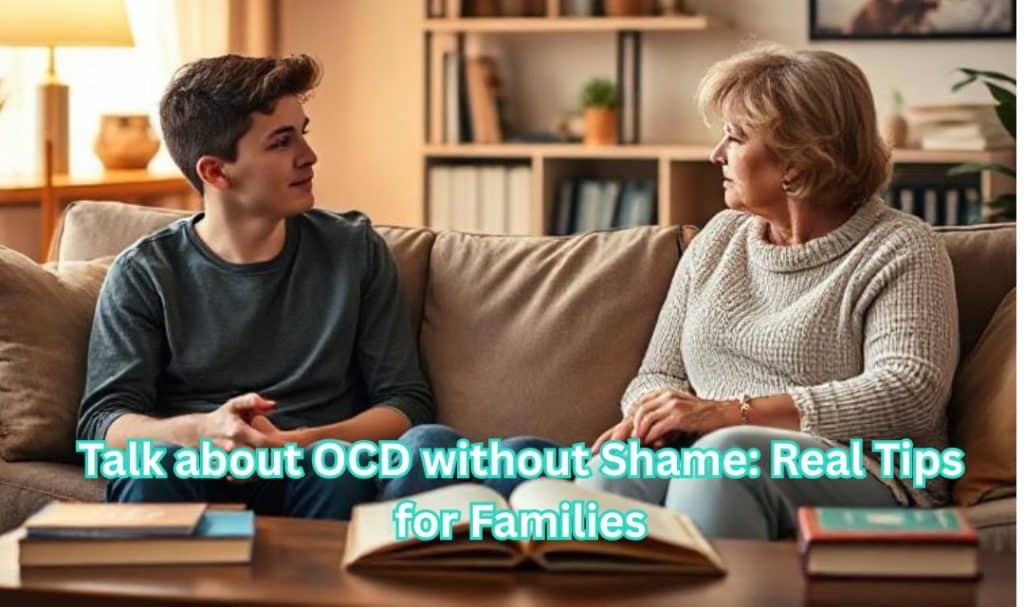Why Talking Openly About OCD Matters
OCD, short for Obsessive Compulsive Disorder, can be a silent battle for many teens and their families. Often misunderstood and misrepresented in mainstream media, OCD goes far beyond quirks about cleanliness or organization. It can disrupt academic success, friendships, family dynamics, and a teen’s self-worth.
But here’s the good news: The shame around OCD can be dismantled. And it starts with how we talk about it, openly, empathetically, and without judgment. At RickBryant.com, we believe that knowledge and compassion are the first steps toward transformation.
As the author of Break Free from Your OCD, I’ve spent years helping teens and parents reframe OCD not as a personal flaw, but as a manageable condition that loses power when brought into the light.
The Hidden Shame of OCD and How to Break the Silence
Shame thrives in secrecy. Many teens don’t tell anyone about their intrusive thoughts or compulsions out of fear they’ll be labeled “crazy” or “weird.” Parents, unsure of what’s happening, may downplay or misinterpret the behavior as stubbornness, defiance, or anxiety.
This silence delays treatment, reinforces negative self-talk, and increases isolation.
But shame begins to break apart when families start having real conversations, rooted in honesty, empathy, and education.
Here’s how to begin.
Normalize the Conversation Around OCD
Start by understanding that OCD is a mental health condition, not a character flaw. It affects roughly 1 in 100 adults and even more teens during adolescence, when the brain is still developing emotional regulation. Open the dialogue with phrases like: “I’ve been reading about OCD and how it affects teens. Have you ever felt stuck with certain thoughts or urges?” Let the other person know that OCD is something they’re experiencing, and help is available.
Choose Language That Reduces Stigma
Words matter. Saying someone “has OCD” is very different from calling someone “so OCD.”
Avoid minimizing or joking about compulsive behaviors, even casually. Teens are incredibly sensitive to tone and can internalize stigma quickly. Instead, use clinical yet compassionate terms like:
- “OCD symptoms”
- “Compulsive urges”
- “Intrusive thoughts”
Modeling respectful language teaches teens that their condition is valid and worthy of thoughtful care, not ridicule or shame.
Create a Safe, Judgment-Free Zone at Home
Many teens feel like their parents won’t “get it”, or worse, will overreact. Create a culture of non-judgmental listening by practicing:
- Active listening (no interrupting or fixing)
- Open-ended questions (“What does it feel like when OCD shows up?”)
- Emotional validation (“That sounds really tough. I’m proud of you for telling me.”)
If your teen senses that your home is a safe space to explore hard emotions, they’ll be more likely to open up, and follow through with treatment strategies.
Don’t Wait for a “Crisis” to Get Help
OCD is most treatable when caught early. Don’t wait for a school suspension, panic attack, or complete emotional shutdown to act.
Introduce resources early, including:
- A family-friendly therapist trained in ERP (Exposure and Response Prevention)
- Digital apps that support CBT practices
- Peer support groups (many are available online for U.S. teens)
And of course, high-quality OCD self-help books that speak directly to teen struggles, like Break Free from Your OCD.
Encourage Your Teen to Share, On Their Terms
Not every teen will want to talk about their OCD journey publicly. And that’s okay.
But some will, and when they do, support them in setting healthy boundaries. Whether it’s confiding in one friend or writing about their experience, self-expression is a powerful antidote to shame.
You can encourage them by saying:
- “If you ever want to tell someone, I’ll help you figure out the right words.”
- “Your story matters. Sharing it could help someone else.”
Final Thoughts
There is no “perfect” way to talk about OCD. But silence is the enemy of healing. Together, you can reframe OCD from a hidden source of shame to a shared journey of healing and growth. And when you need support, Break Free from Your OCD is here to guide you, with practical tools, relatable insights, and real hope for lasting change.

